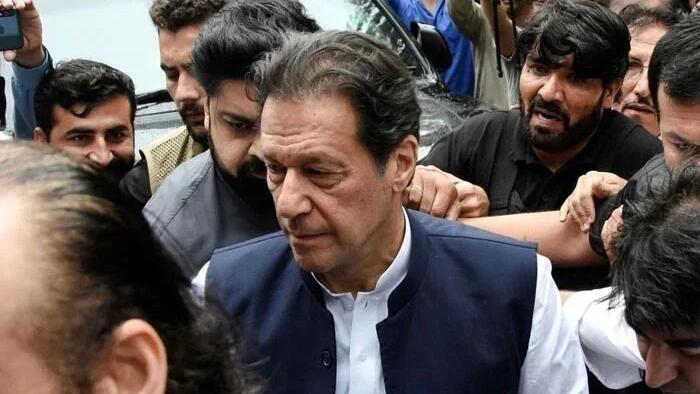Eric Margolis’s piece explores the complex predicament of Pakistan, a nation of over 250 million people endowed with nuclear capabilities and a formidable military, yet grappling with profound socio-political dysfunction. Margolis portrays Pakistan as a “giant mess,” beset by tribal warfare among its political factions and rampant corruption that hampers governance and socioeconomic development. The health crisis is alarming, with a resurgence of diseases like polio and diabetes posing severe challenges to public health. Concomitantly, the country has been ravaged by catastrophic floods in recent years, exacerbating the plight of its citizens. Adding to these internal issues is the formidable threat posed by India, whose far-right government under Prime Minister Modi harbors expansionist ambitions toward Pakistan, further complicating the already tense geopolitical landscape.
Despite its challenges, Margolis highlights that Pakistan’s armed forces remain the most functional institution within the country, with capable leadership that has historically risen to the occasion during crises, such as the anti-Soviet war in Afghanistan. He reflects on notable military figures, including the late General Akhtar Abdur Rahman Khan and General Zia ul Haq, the latter suggesting a complicated legacy of loyalty, strength, and alleged conspiracies surrounding his death. Margolis notes that while he has encountered various Pakistani military personnel, he has often found them to be straightforward compared to their political counterparts, highlighting a certain kinship he feels with the military’s ethos. This aspect of Pakistan’s governance underlines a stark contrast between the efficacy of the armed forces and the inefficacy of its political class.
The piece then shifts its focus to Imran Khan, the former cricket star turned politician, who has emerged as a symbol of popular dissent in Pakistani politics. Once a beloved leader hailed for his charisma and connection with the populace, Khan now finds himself imprisoned on dubious charges, stirring national protests demanding his release. The ruling oligarchy, epitomized by the Sharif brothers, is depicted as corrupt and authoritarian, eliciting Margolis’s criticism for their alignment with Western interests. Khan’s ousting has initiated a harsh crackdown on dissent, revealing the intersection of domestic politics with international dynamics, particularly concerning U.S. foreign policy interventions aimed at sustaining regimes that align with American interests.
Margolis further critiques the hypocrisy of Western democracies, particularly the United States and the United Kingdom, which have historically positioned themselves as champions of democracy yet have remained silent on Khan’s incarceration. He suggests that their tacit support for the Sharif brothers underscores a preference for compliant political entities over truly democratic processes, revealing a pattern of prioritizing geopolitical alignments over democratic integrity in Pakistan and beyond. This aligns with a broader trend of U.S. foreign policy, which often coincides with supporting undemocratic regimes across various regions, including the Middle East, Africa, and parts of Asia, to maintain strategic control.
The article points out that Washington’s support for military and authoritarian regimes contradicts its professed democratic ideals. The absence of media coverage regarding Pakistan’s anti-government protests illustrates this dissonance; movements advocating for democracy in nations allied with the U.S. often receive prominent attention, while underreported struggles against oppressive regimes reveal a selective narrative promoted by Western media outlets. Margolis suggests that the lack of an organized movement behind the protests signals that U.S. intelligence is not backing these uprisings, further complicating the entrenched dynamics of power and influence within Pakistan.
Finally, Margolis provides a broader critique of global power structures, emphasizing that the manipulations by great powers often endanger genuine democratic movements. His observations reflect a melancholic acceptance of the prevailing political realities that place economic and strategic interests above moral considerations related to democracy and governance. Margolis concludes by suggesting that the brutal candor of new political administrations, like that of Trump’s, may reflect a shift towards more overtly self-serving policies that disregard the complexities of democratic values, significantly impacting nations like Pakistan and their inherent struggles for freedom and systemic reform in the face of heavy-handed external influence.

